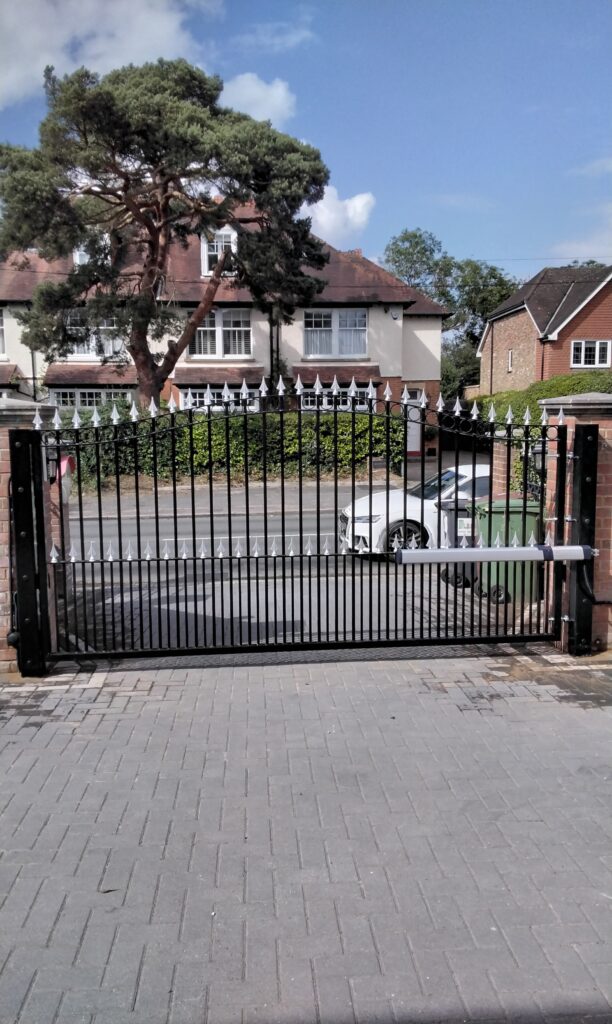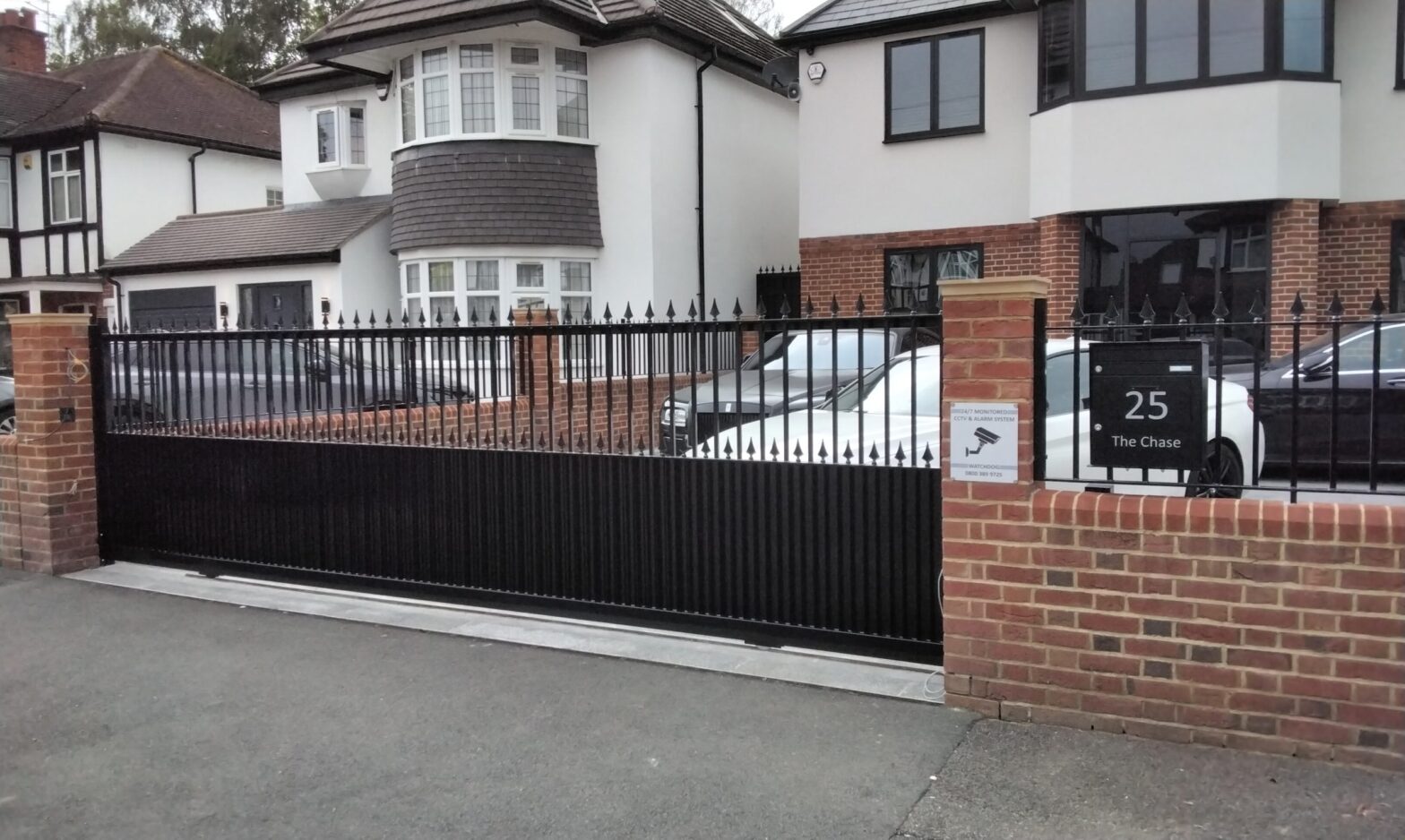
Can You Put a Gate on Shared Access?
If you’re wondering, can you put a gate on shared access?, you’re not alone. Many UK homeowners seek to install gates on shared driveways, alleyways, or pathways to enhance security, boost privacy, and add a sense of control over their property. However, shared access brings its own set of legal and practical considerations that must be carefully navigated before installing any gate. Understanding the legal framework, rights of way, and property restrictions is key to making an informed decision.
What Is Shared Access?
Shared access commonly refers to driveways, pathways, or alleyways used by two or more properties. In the UK, shared access is typical in terraced houses, semi-detached homes, and other residential setups where properties abut or are close to one another. These shared spaces often allow multiple property owners or tenants to enter and exit their homes via the same route.
Legal Framework: Rights of Way and Easements
One of the most important things to understand when considering whether you can install a gate on shared access is the concept of rights of way and easements. These legal rights allow a person to pass through property owned by someone else.
There are two main types:
- Public Rights of Way: These are paths or routes open for public use, which cannot be gated off without specific permissions.
- Private Shared Access: These usually involve a group of property owners sharing the same driveway or alleyway. The right to use this access is often detailed in property deeds or agreements.
Installing a gate on a shared driveway or pathway typically requires all parties’ agreement and may involve formal planning permission if certain local conditions apply. It’s essential to distinguish between public rights of way and private shared access to avoid legal complications.
Common Scenarios Where Shared Access Is Relevant
- Terraced Houses with Shared Alleyways: Many terraced homes share narrow alleyways leading to back gardens. Installing a gate here can improve security but may require consent from neighbours.
- Semi-Detached Homes with Shared Driveways: It’s common for semi-detached properties to have a shared driveway. Placing a gate across this space could affect both residents’ access rights and should be approached with caution.
Importance of Title Deeds
Before installing a gate, check your title deeds carefully. These documents specify rights and restrictions related to shared access and often include whether you can erect gates or barriers. If the deeds don’t explicitly allow it, you may need to negotiate with other property owners or seek legal advice.
If you’re ready to enhance your property’s security and privacy but are unsure about the complexities of shared access, Security Gates ‘R’ Us Ltd can help. We offer expert advice and bespoke gate solutions designed to meet your needs while respecting legal boundaries and neighbourly relations.
Legal Considerations for Installing a Gate
Installing a gate is a fantastic way to enhance your property’s security and curb appeal, but before you get started, it’s important to understand the legal landscape. Navigating the legal considerations ensures you avoid costly disputes or enforcement actions later on. Let’s explore the key factors you need to keep in mind to stay compliant with UK property laws.
Permission Requirements
One of the first steps is obtaining consent from all parties who have legal access rights to the property. This includes neighbours, tenants, or anyone else who might have established rights of way or shared access. Installing a gate without this consent can lead to significant legal disputes. Making a unilateral decision—installing a gate without agreement—can result in court orders to remove the gate or compensation claims. So, clear communication and written agreements are essential to avoid conflicts.
Planning Permissions
Planning permission is not always required for gate installation, but certain circumstances make it necessary. For instance, if your gate exceeds a specific height (usually above 1 metre if it’s adjacent to a highway, or above 2 metres elsewhere), you will likely need to seek planning permission. Also, if your property lies within conservation areas, additional restrictions apply to preserve the local character. It’s crucial to check with your local council because regulations can vary, and a planning condition might be imposed to ensure the gate complies with community standards.
Obstruction of Access
Another critical legal consideration is ensuring your gate does not obstruct any right of way or shared access routes. Blocking a public or private right of way without permission can lead to enforcement actions, including legal orders to remove or modify the gate. Ignoring these issues might also expose you to liability for any damages or inconvenience caused to affected parties.
Case Studies
Several legal disputes have arisen from unauthorised gate installations. For example, a homeowner installed a set of sliding gates without consulting their neighbours who shared the driveway. This led to a prolonged legal battle, resulting in a court injunction to remove the gates and pay compensation. Another case involved gates installed in a conservation area without the proper planning permissions, leading to enforcement notices and fines. These examples highlight the importance of understanding and adhering to legal requirements before proceeding.
Best Practices for Installing a Gate on Shared Access
Installing a gate on a shared access driveway requires careful consideration to ensure legal compliance, maintain good neighbourly relations, and ensure mutual benefit. Here’s a comprehensive guide to navigate this process effectively.
Communication with Neighbours
Open dialogue is paramount when planning to install a gate on shared access. Initiate discussions early, clearly outlining your intentions and the reasons behind the decision. This transparency fosters trust and allows for any concerns to be addressed collaboratively. Engaging in respectful conversations can lead to mutual agreements that benefit all parties involved.
Legal Agreements
To formalise the arrangement, it’s advisable to draft a legal agreement detailing each party’s responsibilities and permissions. This document should outline aspects such as gate usage, maintenance duties, and cost-sharing. Involving legal professionals ensures that the agreement is comprehensive and enforceable, providing protection for all parties.
Design Considerations
When selecting a gate design, prioritise accessibility and safety. Opt for designs that do not impede access for emergency services or daily use. Additionally, ensure the design complies with local regulations and safety standards. Choosing a design that complements the surrounding environment can also enhance the property’s aesthetic appeal.
Maintenance and Costs
Discuss and agree upon maintenance responsibilities to prevent future disputes. Establish a clear schedule for inspections and repairs, and determine how costs will be shared. Equitable distribution of expenses ensures that no party bears an undue financial burden. Regular maintenance not only prolongs the gate’s lifespan but also maintains its functionality and appearance.
Whether you need sliding gates, retractable security gates, or custom driveway gates, our professional team ensures a smooth, compliant installation process. Contact us today or book a demo to learn more about how we can secure your shared access respectfully and effectively.
Common Disputes and How to Resolve Them
Installing a driveway gate can enhance your property’s security and curb appeal. However, without proper planning and communication, it can lead to disputes with neighbours. Understanding common conflicts and knowing how to resolve them can help maintain good relationships and avoid legal issues.
Typical Conflicts
Disagreements Over Gate Installation Without Consent
One of the most common issues arises when a gate is installed without consulting neighbouring property owners. This can lead to disputes over property boundaries and access rights. For instance, if a gate obstructs a shared driveway or easement, it can impede access and cause frustration. According to legal experts, it’s essential to communicate with neighbours before making such installations to prevent misunderstandings.
Issues Arising from Obstructed Access or Maintenance Responsibilities
Another frequent conflict occurs when a gate obstructs access to neighbouring properties or shared areas. This can be particularly problematic in cases where maintenance responsibilities are unclear. Legal guidance suggests that property owners should have clear agreements in place regarding maintenance duties to avoid disputes.
Resolution Strategies
Engaging in Open Communication and Mediation with Neighbours
Open and respectful communication is often the first step in resolving disputes. Engaging in mediation can also be beneficial, as it allows both parties to express their concerns and work towards a mutually agreeable solution. Experts recommend documenting all communications and agreements to ensure clarity and prevent future conflicts.
Seeking Legal Advice or Intervention When Necessary
If direct communication and mediation do not resolve the issue, seeking legal advice may be necessary. Legal professionals can provide guidance on property rights and assist in drafting formal agreements or taking legal action if required. It’s important to understand local laws and regulations to ensure compliance and protect your rights.
Preventive Measures
Establishing Clear Agreements and Documentation
To prevent future disputes, it’s advisable to establish clear agreements with neighbours regarding gate installations and maintenance responsibilities. These agreements should be documented in writing and signed by all parties involved. This documentation can serve as a reference in case of disagreements and help clarify each party’s obligations.
Regularly Reviewing and Updating Access Arrangements
Regularly reviewing and updating access arrangements can help address any changes in circumstances and prevent potential conflicts. It’s important to keep open lines of communication with neighbours and make adjustments as needed to ensure that everyone’s rights and access are respected.
Conclusion
Installing a driveway gate can provide added security and privacy to your property. However, it’s crucial to consider the potential impact on neighbouring properties and access rights. When it comes to securing your property with reliable and stylish gates, Security Gates ‘R’ Us Ltd stands out as a top choice. Offering a wide range of products, including bar grille doors, retractable security gates, driveway gates, and railings & composite gates, they cater to diverse security needs with exceptional quality.
Customers consistently praise our excellent service and the professionalism of our friendly team, who go above and beyond to ensure satisfaction. Whether you need to upgrade your home’s security or enhance its curb appeal, Security Gates ‘R’ Us Ltd provides tailored solutions that combine durability and style. To discuss your requirements or get a free quote, call them at 07401 217 653 or 0208 4322 999 today. Trust the experts who prioritise your safety and peace of mind.

